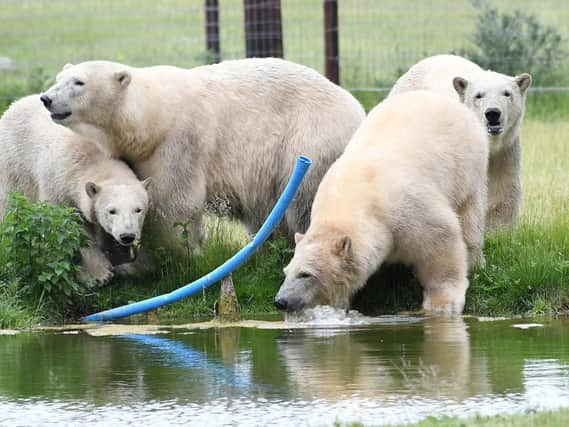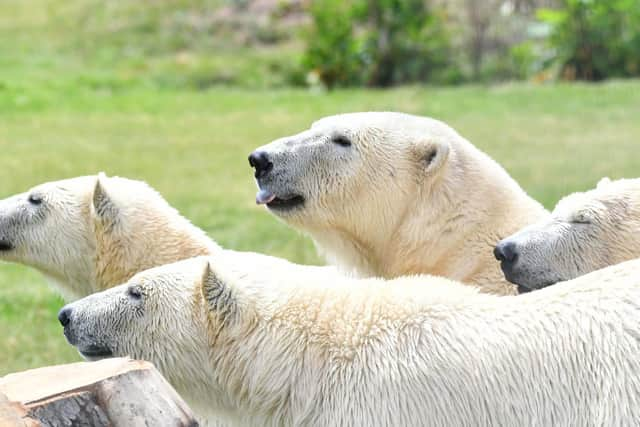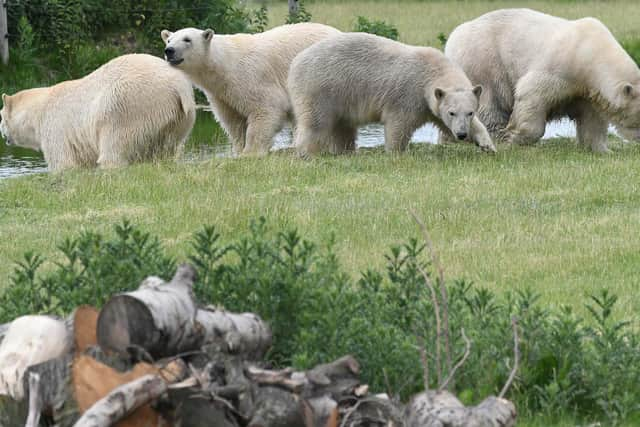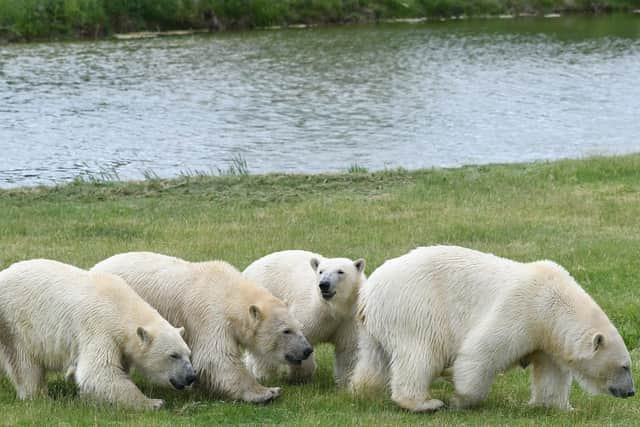‘Extremely rare’ polar bear triplets and mother arrive at Yorkshire Wildlife Park


The triplets - males Indiana, (known as Indie) and Yuma, and tiny female Tala – and their 12-year-old mother will live separately to the park’s resident males who live in the 10-acre Project Polar 1.
At 18 months old the youngsters are likely to be lively additions to the Park.
Advertisement
Hide AdAdvertisement
Hide AdThey will go on display to the public tomorrow (June 15) after being unveiled today.


The new arrivals bring the park’s polar bear total up to eight, which makes Project Polar the largest polar bear centre outside Canada.
Surviving triplets are extremely rare in polar bears but Flocke has followed her ancestors’ genes to become the fourth generation to produce a triplet. It is a once in a decade event in polar bear breeding in zoos or parks.
The four polar bears travelled from their previous home at Marineland, in the south of France to the park, at Auckley, near Doncaster, after the move was recommended by the EEP, which considered YWP the best home for them.
Advertisement
Hide AdAdvertisement
Hide AdThe bears travelled in two climate-controlled vehicles during the journey from Antibes, and were assessed and monitored throughout to ensure their safety.


Project Polar brings together polar bear welfare, conservation and awareness, and research to benefit the species in the wild and advance welfare in zoos and wildlife parks.
Flocke and her three youngsters in Project Polar 2 - combined with males by Sisu, Luka, Hamish and Nobby in the bachelor reserve Project Polar 1 - make up the largest grouping in Europe and second largest in the world in any zoo or wildlife park.
“We have been delighted to welcome the new polar bears to YWP, especially a complete family. YWP has built a reputation as a leader in polar bear welfare and conservation,” said Dr Charlotte Macdonald, Animal Director at the park.
Advertisement
Hide AdAdvertisement
Hide Ad“These moves will help us in our campaign to ensure that polar bears can survive and prosper in the wild. The youngsters will enjoy exploring their new reserve and swimming in the lake – it will be great to see them all playing together.”


Polar bears are the largest land carnivore and are listed as vulnerable on the International Union for Conservation of Nature’s Red List of Threatened Species, due to climate change that is causing loss of sea ice which restricts their ability to find food.